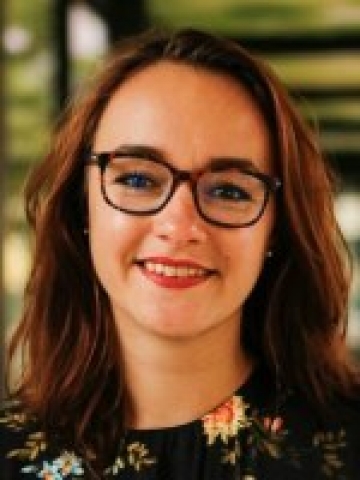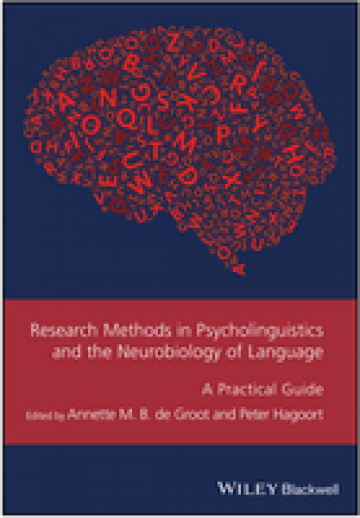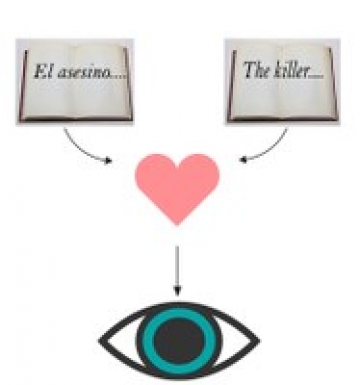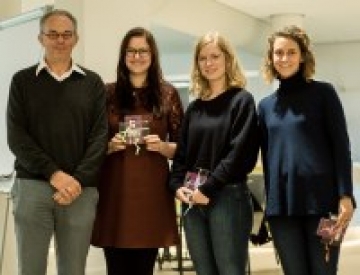-
 18 January 2018
18 January 2018Hunter-gatherers have a special way with smells
When it comes to naming colors, most people do so with ease. But, for odors, it’s much harder to find the words. One notable exception to this rule is found among the Jahai people, a group of hunter...
-
 15 December 2017
15 December 2017Christine Mohrmann Stipend for Linda Drijvers
On Tuesday 12 December, Linda Drijvers received the Christine Mohrmann Stipend 2017. This stipend is awarded by the Radboud University to promising female PhD candidates to pursue a career in academia...
-
14 December 2017
Celebrating 25 years of research into language and cognition
Does language shape the way you think? Does conversation work the same way across cultures? What can diverse languages tell us about how we experience the world? These are just some of the questions...
-
 13 December 2017
13 December 2017A practical guide for language researchers
By bringing together contributions from a distinguished group of language researchers, Annette de Groot and Peter Hagoort collected in one volume the methods and technologies that are used by today’s...
-
 29 November 2017
29 November 2017European Research Council Grant for Judith Holler
Judith Holler from Radboud University’s Donders Institute and the Max Planck Institute for Psycholinguistics received the prestigious Consolidator Grant from the European Research Council (ERC). The...
-
 23 October 2017
23 October 2017Neurobiology of Language - Audiovisual Recalibration of Vowel Categories
Speech perception is a complex task. It involves making sense of an acoustic signal that is distorted by background noise (traffic noise when talking on the street, other people’s conversations in a...
-
 09 October 2017
09 October 2017We seem less susceptible to emotions in a foreign language, and our eyes reveal it
Does it matter in which language we receive emotional information? A new study by an international team of scientists, including the MPI’s Sara Iacozza, shows that it does, and the eyes reveal so...
-
 02 October 2017
02 October 2017The 'myth' of language history
Languages do not share a single history but different components evolve along different trajectories and at different rates. A large-scale study of Pacific languages reveals that forces driving...
-
 29 September 2017
29 September 2017IMPRS trio wins first prize for best article in yearly writing course
For the yearly writing course “Current Issues in the Language Sciences”, graduate students of the IMPRS for Languages Sciences are judged on an article written for the general audience. Last Tuesday...
-
 25 September 2017
25 September 2017Neurobiology of Language - Relating genetic variation to brain volume
How does the gene CNTNAP2 relate to structural variations in the brain? In our new publication, in press in Brain and Language, we looked at the association between a CNTNAP2 variant and grey matter...
Share this page